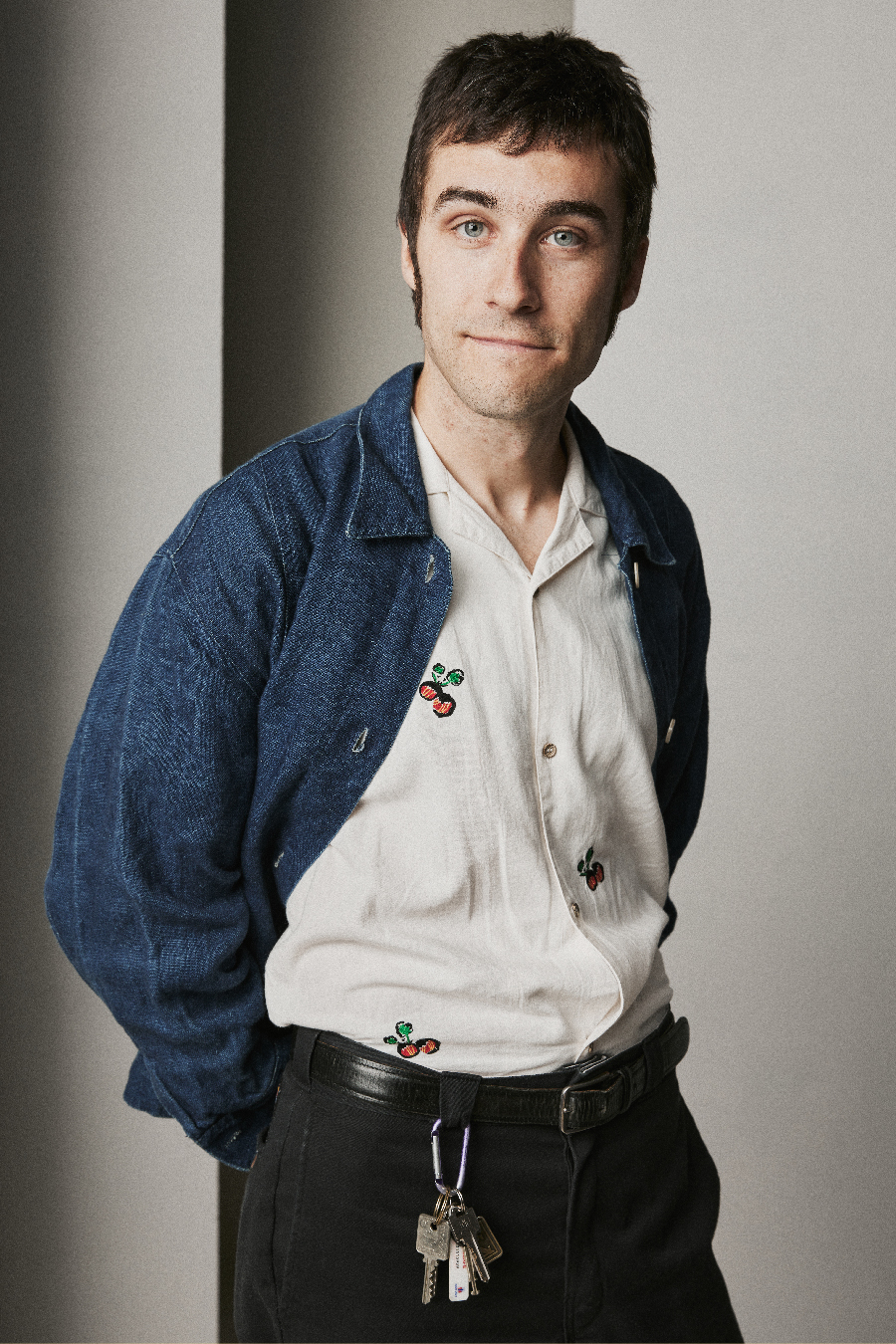Filmmaker Spotlight: Graham Foy
The Alberta-born director delivers a poignant debut feature with The Maiden.

Photo shot by Carlyle Routh in the TIFF x BVLGARI Portrait Studio, courtesy of the Toronto International Film Festival (2022).
As a high school kid in Calgary, writer and director Graham Foy set up an amateur darkroom in his parents’ basement. “There was something about that process of listening to music and seeing these images emerge in the darkroom that felt like a first cinematic experience,” he says. His interest in photography led him to photograph his friends skateboarding and snowboarding. “That was a really great training ground for how to shoot, how to compose, how to sequence things together in an interesting way, figuring out tone or mood with music, pairing that with images and with movement,” he says. Photography became his way into the more technical aspects of making a film or a video.
Foy is a master of mood, and his work is haunting, atmospheric, and melancholic. He earned the Grand Prize at the 2018 Prism Prize Awards for his direction of musician Charlotte Day Wilson’s music video for her song “Work.” The video is powerfully ambiguous, featuring an escalator with an infinite line of women with no destination depicted. “There was something about the way in which that image could evoke different ideas in the song without forcing too much on the audience,” Foy says. “It could be interpreted several different ways.”
The adolescent experiments of his youth informed the visual texture of Foy’s debut feature The Maiden, which he shot on 16-millimetre film. He wrote and directed the movie, which centres on a group of teenagers as they grapple with loss, grief, and the unknowable expanse of the natural world. The film evokes a strong sense of place, based on Foy’s experiences as a youth in Calgary exploring the same ravine and the train bridge that act as the film’s central point of development. The Maiden took home the Cinema of the Future award at the Venice International Film Festival last year, where it had its world premiere at Venice Days, and has since racked up nominations at the Canadian Screen Awards, International Cinephile Society Awards, and São Paulo International Film Festival, among others.
After the film’s critical international acclaim, Foy’s ambitions are simple: to keep working and hone his artistic voice and vision. “I think that creating stories that straddle that line between stark realism and magical realism, stories that very much speak to our connection with nature, and friendship, and connection with other human beings,” he says. “Maybe that’s really broad. But that’s pretty much where I want to continue to make films and tell stories.”




